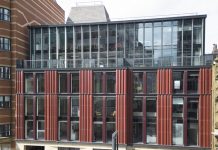Developers looking to renovate shops and offices in Yorkshire could stand to save thousands of pounds in business rates on the back of a landmark Supreme Court judgement, according to a leading local law firm.
Lawyers at hlw Keeble Hawson cite the recent case of Newbigin vs Monk as a reason for local ratepayers and developers to seek immediate advice on their business rate liabilities.
The case centred on a disagreement about the rateable value of a property in the North East that was being extensively redeveloped. The ratepayer argued that, because all of the services and installations had been stripped out as part of the refurbishment, the building should not be valued as if it was a useable office block.
The Valuation Office (VO) disagreed, claiming that unless a building is beyond economic repair, it should be valued as a property capable of being put back into commercial use.
The ratepayer said the rateable value should be £1, the VO said it should be £102,000.
“This is a massive financial difference and, in the end, the Supreme Court came down on the side of the ratepayer,” explained property litigation solicitor, Sarah Finnemore.
“Although the question of whether a property is incapable of beneficial occupation will have to be considered on a case-by-case basis, the judgement has sent out a very strong message.
“It has huge implications for ratepayers and property developers across the Yorkshire region, because it provides support for ratepayers to potentially seek to have the rating list altered during redevelopment.”
In the Newbigin vs Monk case, The Supreme Court held that the starting point for assessing rates in development cases should be to objectively evaluate whether a building is either in a state of disrepair or undergoing renovation works. It said the valuer can take into consideration the scheme of works which are being carried out on the material date for the purpose of making that assessment.






















